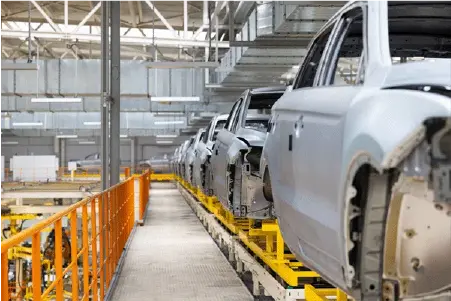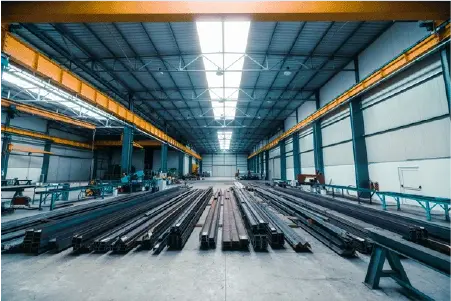What are MMA Adhesive?
Methyl Methacrylate (MMA) adhesives, commonly referred to as acrylic adhesives or structural adhesives, are a type of adhesive based on methyl methacrylate monomer, most commonly found in two component cartridges with separate chambers that are then mixed. Other formulations are also available, such as 'no-mix adhesives'.
The term "acrylic adhesives" is a broad classification as most adhesives are acrylic based.
Within the two part methacrylate adhesive, which consist of an adhesive resin and an activator, there are two main classifications based on the mixing ratio: MMA adhesives 10:1 and MMA adhesives 1:1.
The main differences are:
| MMA Adhesive Parameter | 10:1 Mix Ratio | 1:1 Mix Ratio |
|---|---|---|
| Mixing Ratio | Requires 10 parts resin to 1 part activator | Requires equal parts of resin and activator |
| Tensile Elongation | 50-150% | Typically Below 30% |
| Tensile Strength | Lower (2,500-3,500 PSI) | Higher (3,500-3,750 PSI) |
|
Storage Stability at Elevated Temperatures (25-35°C)
|
High – More resistant to temperature variations |
Low –Susceptible to premature hardening |
| Shelf Life | Longer (12 months) | Shorter (8-9 months) |
| Mixing Precision | More precise due to defined mixing proportion | Easier to mix, but requires precise application |
Conclusion:
ADINOX 10:1 MMA adhesive or two-part methacrylate adhesive offers an ideal balance of tensile strength and elongation, making them suitable for a wide range of substrates and industries. Their superior chemical stability and extended shelf life make them a versatile bonding solution.
ADINOX 1:1 Mix Ratio MMA adhesive or two part methacrylate adhesive offer higher tensile strength, making them ideal for applications requiring rigid and strong bonds, but with less flexibility and shorter shelf life.
Methyl methacrylate adhesive VS other systems
Differences Between ADINOX methyl methacrylate adhesive and mechanical fastening systems
Parameters | WeldingTIG | ADINOXMMA |
Total Operating Cost Efficiency
| 1 - $3 USD per linear inch | 1 USD per linear meter (Ø 2 mm) |
Vibration Resistance
| Rigid fixation | Absorbs impacts |
Efficient Load Distribution | Medium | High |
Ease of Workforce Training
| Requires skilled personnel | Can be applied by any operator |
Minimizing Rework & Additional Processes
| Requires grinding and polishing | Clean application |
Lower Substrate Thickness Requirement
| Requires a minimum gauge | Suitable for any gauge |
Automation Compatibility
| Easy | Easy |
Material Compatibility
|
| Bonds dissimilar alloys |
Weight Reduction
| Requires filler material | No additional components |
Aesthetic & Bond Visibility
| Visible weld bead and heat marks | Invisible bond |
Parameters | Bolts
M6 SS Grade 5 | ADINOXMMA |
Total Operating Cost Efficiency
| Cost-effective parts + labor | $1 USD per linear meter (Ø 2 mm) |
Vibration Resistance
| Prone to loosening | Absorbs impacts |
Efficient Load Distribution
| Poor | High |
Ease of Workforce Training
| Can be applied by any operator | Can be applied by any operator |
Minimizing Rework & Additional Processess
| Drilling required | Clean application |
Lower Substrate Thickness Requirement
| Gauge-dependent | Suitable for any gauge |
Automation Compatibility
| Medium | Easy |
Material Compatibility
|
| Bonds dissimilar alloys |
Weight Reduction
| Additional fasteners required | No additional components |
Aesthetic & Bond Visibility
| Visible head | Invisible bond |
Parameters | Rivets
3/16" x 3/8" aluminum pop | ADINOXMMA |
Total Operating Cost Efficiency
| Cost-effective parts + labor | $1 USD per linear meter (Ø 2 mm) |
Vibration Resistance
| Prone to loosening | Absorbs impacts |
Efficient Load Distribution
| Poor | High |
Ease of Workforce Training
| Can be applied by any operator | Can be applied by any operator |
Minimizing Rework & Additional Processes
| Drilling required | Clean application |
Lower Substrate Thickness Requirement
| Suitable for any gauge | Suitable for any gauge |
Automation Compatibility
| Difficult | Easy |
Material Compatibility
|
| Bonds dissimilar alloy |
Weight Reduction
| Additional fasteners required | No additional component |
Aesthetic & Bond Visibility
| Visible head | Invisible bond |
Parameters
Total, Operating Cost Efficiency
|
Vibration Resistance
|
Efficient Load Distribution
|
Ease of Workforce Training
|
Minimizing Rework & Additional Processes
|
Lower Substrate Thickness Requirement
|
Automation facility |
Material Compatibility
|
Weight Reduction
|
Aesthetic & Bond Visibility
|
ADINOX
MMA
$1 USD per linear meter Ø 2 mm |
Absorbs impacts
|
High
|
Can be applied by any operator
|
Clean application
|
Suitable for any gauge
|
Easy
|
Bonds dissimilar alloys |
No additional components |
Invisible bond
|
Welding
TIG
$1 - $3 USD per linear inch |
Rigid fixation
|
Medium
|
Requires skilled personnel
|
Requires grinding and polishing
|
Requires a minimum gauge |
Easy |
Compatible with same alloys |
Requires filler material |
Visible weld bead and heat marks
|
Rivets
Aluminum pop (3/16" x 3/8")
Cost-effective parts + labor
|
Prone to loosening
|
Poor
|
Can be applied by any operator
|
Drilling required
|
Suitable for any gauge |
Difficult |
Requires same alloy, otherwise galvanic corrosion occurs |
Additional fasteners required |
Visible head |
Bolts
M6 SS Grade 5
Cost-effective parts + labor
|
Prone to loosening
|
Poor
|
Can be applied by any operator
|
Drilling required
|
Gauge-dependent |
Medium |
Requires same alloy, otherwise galvanic corrosion occurs
|
Additional fasteners required |
Visible head
|
Compatibility
ADINOX methyl methacrylate adhesives are compatible with the following substrates:
Thermoset plastics
- Fiberglass
- FRP
- Phenolics
- Gel coats
- Epoxies
- Carbon fiber
- Urethane
- Polyurethane
- RIM Resins
Thermoplastics
- Acrylics
- ABS
- PBT
- Polycarbonate
- Nylon
- PPO
- Vinyl
- PET-based composites
- Polystyrene
Metals
- Stainless steel
- Carbon steel
- Aluminum
- Coated steel
- Galvanized steel
Industries for MMA adhesive
Our two-part methacrylate adhesives are recommended for the following industries:

Construction

Automotive

Metalworking

Renewable Energy

Oil & Gas

Transportation